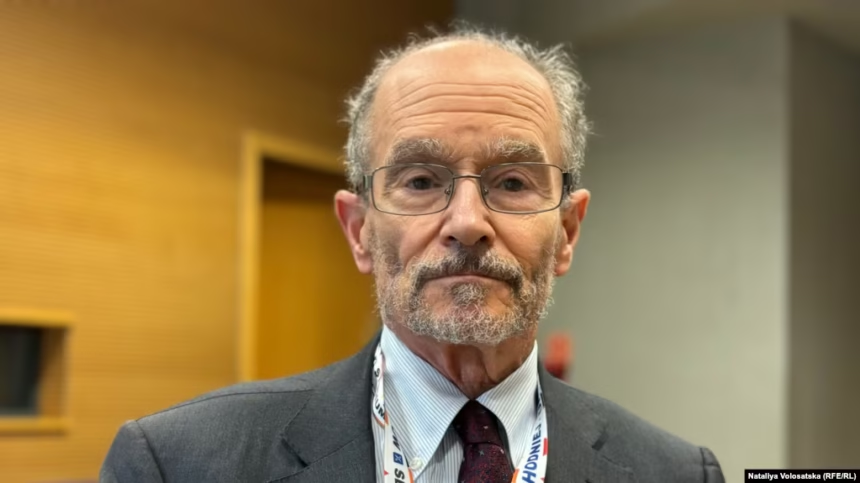Daniel Fried, former Assistant Secretary of State, suggests that even if the Trump administration is not fully focused on Kosovo currently, maintaining dialogue and seeking allies within it is important. He states it’s “useful to start creating contacts and communication habits for when the moment comes.” Fried accompanied Kosovo President Vjosa Osmani during several meetings in the U.S. last week, reports RFE.
When asked to comment on Osmani’s statements that Trump recently prevented an escalation by Serbia in Kosovo, Fried stated he didn’t know the details, but added, “it’s always a good tactic to attribute credit to the Trump administration.” In his interview with Radio Free Europe (RFE), Fried also discussed the ongoing deadlock in Kosovo’s Assembly and the development of economic relations between Kosovo and the U.S.
On Kosovo’s Institutional Deadlock
Regarding Kosovo’s three-month parliamentary deadlock, Fried acknowledged the situation but refrained from direct criticism, drawing parallels to political challenges in Washington. He emphasized Kosovo’s need for a functional government capable of addressing its challenges stably and energetically.
“A prolonged political deadlock is not a problem in itself, as long as it is resolved with the formation of a government that can do its job,” Fried said. He stressed that the future Government of Kosovo must be able to cooperate with the U.S. and the European Union and tackle internal challenges, beyond those with Serbia.
Fried, as an American, stated he would not dictate what Kosovar politicians should do. His primary concern is that the process results in a functional government capable of making decisions.
Trump Administration’s Engagement in the Western Balkans
Fried noted that the Trump administration has limited attention to foreign affairs generally, partly due to many key positions in the State Department and National Security Council remaining unfilled. While active in Ukraine, he believes it’s “impossible” for the administration to fully engage with issues like Kosovo due to resource constraints.
He also expressed concern about reports of individuals close to Trump having commercial interests in Serbia, specifically mentioning hotel projects in Belgrade. Fried views this as problematic if short-term commercial interests overshadow long-term strategic interests in the Western Balkans.
“The idea of building hotels or something similar has worried me, because it pointed to a short-term commercial interest, instead of a long-term strategic interest,” he explained, suggesting it might be better for the Trump administration not to be “too engaged” if it risks misdirection. He reiterated that the strategic goal is for all Western Balkan countries to move towards Europe and Euro-Atlantic integration, rather than being stuck in nostalgia for lost empires.
Kosovo-U.S. Economic Ties and Serbia’s “Moment of Truth”
Fried affirmed that strengthening economic relations is always beneficial for Kosovo. He encouraged an aggressive approach from Kosovo in developing business opportunities, emphasizing that economic cooperation with the U.S. should not wait for political issues with Serbia to be resolved. He suggested that focusing on American business interests is a practical approach given Trump’s focus on such matters.
Regarding pressure on Serbia, Fried believes the U.S. and Europe will need a “moment of truth” with the Serbian leadership, telling them they cannot simultaneously pursue European integration and try to reclaim Kosovo or advance Russian interests. He acknowledged that Serbian President Aleksandar Vučić is facing internal pressure from protests and perceptions of corruption, stating that Vučić’s “dual approach” has been endured for too long and “must end.”







